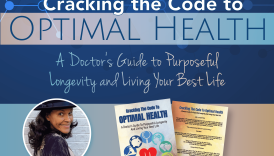The Ultimate Guide to Achieving a Happy and Healthy Lifestyle

Importance of a Happy and Healthy Lifestyle
Mental Benefits
Embracing a happy and healthy lifestyle brings profound mental benefits that can transform how one perceives the world. For instance, engaging in regular physical exercise has shown to release endorphins, often referred to as “happiness hormones.” This can lead to reduced feelings of anxiety and depression. Consider:
- The Ultimate Guide to Achieving a Happy and Healthy Lifestyle
- Importance of a Happy and Healthy Lifestyle
- Mental Benefits
- Physical Benefits
- Nutrition and Diet Tips
- Balanced Diet
- Superfoods to Incorporate
- Exercise and Fitness Routine
- Cardio Workouts
- Strength Training Basics
- Mindfulness and Stress Management
- Meditation Techniques
- Stress-Relief Strategies
- Importance of Quality Sleep
- Sleep Hygiene Tips
- Creating a Relaxing Bedtime Routine
- Social Connections and Support Systems
- Building Healthy Relationships
- Joining Supportive Communities
- Pursuing Hobbies and Interests
- Benefits of Hobbies
- Finding New Passions
- Self-Care Practices
- Prioritizing Self-Care
- Daily Self-Care Rituals
- Balancing Work and Personal Life
- Time Management Strategies
- Setting Boundaries
- Seeking Professional Help When Needed
- Therapy Options
- Consulting with Health Professionals
- Improved Mood: Simple activities like a brisk walk or a yoga session can elevate one’s spirits.
- Enhanced Focus: A healthy lifestyle fosters better concentration, enabling individuals to tackle challenges more effectively.
Physical Benefits
Along with mental clarity, the physical benefits of maintaining a happy and healthy lifestyle are equally significant. Regular exercise and a balanced diet not only enhance fitness levels but also promote overall well-being. Key physical advantages include:
- Increased Energy: A nutritious diet paired with physical activity boosts energy levels, making daily tasks feel less daunting.
- Stronger Immunity: Healthy living enhances the body’s defense mechanisms, helping to ward off illnesses.
These combined benefits create a virtuous cycle, encouraging individuals to prioritize their well-being and happiness.
Nutrition and Diet Tips
Balanced Diet
Transitioning to a happier and healthier lifestyle starts with understanding the importance of a balanced diet. It’s remarkable how the foods we eat can make a profound difference in our mental and physical well-being. A balanced diet includes a variety of foods from all food groups to ensure we get the necessary nutrients. For example, try to include:
- Fruits and Vegetables: Aim for at least five servings a day to boost vitamins and minerals.
- Whole Grains: Choose brown rice, quinoa, and whole-grain bread for sustained energy.
- Lean Protein: Incorporate sources like chicken, fish, beans, and tofu to maintain muscle mass.
Superfoods to Incorporate
In addition to maintaining balance, incorporating superfoods into your diet can provide an extra boost. These nutrient-dense foods are packed with antioxidants and can enhance overall health. Here are a few to consider:
- Blueberries: Known for their high antioxidant content, they can help reduce inflammation.
- Kale: This leafy green is a powerhouse of vitamins and can be added to salads or smoothies.
- Chia Seeds: Rich in omega-3 fatty acids, they can be sprinkled on yogurt or added to oatmeal.
By embracing a balanced diet and including superfoods, individuals can enjoy the journey towards enhanced health and happiness.
Exercise and Fitness Routine
Cardio Workouts
As part of a happy and healthy lifestyle, incorporating regular exercise is essential. Cardio workouts, in particular, are fantastic for boosting heart health and increasing endurance. Whether it’s a spirited dance class or a peaceful jog in the park, the options are endless and can suit any fitness level. Consider dedicating at least 150 minutes a week to moderate-intensity cardio activities, such as:
- Brisk Walking: Great for beginners and can easily be integrated into daily routines.
- Cycling: Whether outdoors or on a stationary bike, cycling can be fun and effective.
- Swimming: A low-impact option that works multiple muscle groups while keeping you cool.
Strength Training Basics
Incorporating strength training into your fitness routine is equally crucial. Not only does it help build muscle tone, but it also boosts metabolism and supports bone health. Starting with basic exercises can make a significant difference. A few beginner-friendly exercises include:
- Bodyweight Squats: Excellent for strengthening the legs and core.
- Push-Ups: Can be modified for any fitness level, targeting the upper body.
- Dumbbell Rows: Great for equipping your back and promoting good posture.
By combining cardio workouts with strength training, individuals can cultivate a well-rounded fitness routine that reinforces both physical and mental wellness.
Mindfulness and Stress Management
Meditation Techniques
As one embarks on a journey towards a happier and healthier lifestyle, mindfulness and stress management become essential components. Meditation techniques offer a powerful avenue to enhance focus and lessen anxiety. For many, including myself, dedicating just a few minutes each day can turn a chaotic mind into one of clarity and calm. Here are a few effective meditation techniques to try:
- Mindfulness Meditation: Focus on your breath and gently acknowledge any thoughts that arise without judgment.
- Guided Visualization: Picture a peaceful scene—like a serene beach or tranquil forest—to aid relaxation.
- Body Scan: Move your awareness through different parts of your body, releasing tension as you go.
Stress-Relief Strategies
Beyond meditation, incorporating practical stress-relief strategies can further promote overall well-being. Personal moments of stress may lead to adopting techniques that work best for individual lifestyles. Consider implementing:
- Deep Breathing Exercises: Pausing to take deep, intentional breaths can ground you in the moment.
- Nature Walks: Spending time outdoors not only boosts mood but also allows for refreshing breaks.
- Creative Outlets: Engaging in hobbies—like painting, writing, or gardening—can serve as a therapeutic escape.
By integrating these mindfulness practices and stress-relief strategies into daily routines, individuals can cultivate a greater sense of peace and well-being.
Importance of Quality Sleep
Sleep Hygiene Tips
As individuals strive for a balanced, happy lifestyle, prioritizing quality sleep becomes non-negotiable. Good sleep hygiene can elevate not just energy levels but also overall health and mood. Simple changes can make a significant difference in how restorative your sleep is. Here are some effective sleep hygiene tips:
- Consistent Schedule: Aim to go to bed and wake up at the same time every day, even on weekends.
- Comfortable Environment: Ensure your bedroom is dark, quiet, and cool to promote sleep.
- Limit Screen Time: Try to avoid screens at least an hour before bed to minimize blue light exposure.
Creating a Relaxing Bedtime Routine
In addition to sleep hygiene, establishing a relaxing bedtime routine can mellow the mind and body, making it easier to drift into slumber. This can be as simple as winding down with calming activities each night. Consider trying:
- Reading: Engaging in a light book can be a perfect transition from the day’s hustle.
- Gentle Yoga: Stretching can release tension from the body and calm the mind.
- A Warm Bath: Taking a warm bath can help lower body temperature post-bath, signaling your body that it’s time to sleep.
By adopting good sleep hygiene practices and a soothing bedtime routine, individuals can reap the benefits of restful sleep, enhancing overall health and happiness.
Social Connections and Support Systems
Building Healthy Relationships
While focusing on personal well-being, it’s vital to recognize the impact of social connections on achieving a happy and healthy lifestyle. Building healthy relationships can greatly enhance emotional support, reduce stress, and foster a sense of belonging. To cultivate these connections, consider:
- Active Listening: Engaging fully in conversations to show others that you value their thoughts and feelings.
- Regular Check-ins: Whether through a quick text or a coffee meet-up, staying connected makes a world of difference.
- Expressing Gratitude: Acknowledging and appreciating the people in your life can strengthen your bond with them.
Joining Supportive Communities
In addition to personal relationships, joining supportive communities can provide an invaluable network that shares common interests and goals. These groups can serve as a source of encouragement and motivation, particularly during tough times. Consider exploring:
- Local Clubs or Classes: From book clubs to fitness classes, these can be great ways to meet like-minded individuals.
- Online Forums: Websites or social media groups focused on personal growth can offer ideas and shared experiences.
- Volunteering Opportunities: Getting involved in community service not only helps others but also builds personal connections.
By nurturing healthy relationships and engaging with supportive communities, individuals can significantly enhance their emotional well-being and overall happiness.
Pursuing Hobbies and Interests
Benefits of Hobbies
Continuing the journey to a happier and healthier lifestyle, investing time in hobbies and interests is crucial. Engaging in activities one loves provides a refreshing escape from daily stresses, allowing for mental rejuvenation. Personally, I’ve found that dedicating even a small amount of time to hobbies can uplift my mood incredibly. Here are some notable benefits of pursuing hobbies:
- Reduced Stress: Immersing yourself in enjoyable activities can help you unwind and alleviate stress.
- Enhanced Creativity: Hobbies stimulate the brain and encourage creative thinking, which can spill over into other aspects of life.
- Improved Social Connections: Joining hobby clubs can lead to meeting new friends who share similar interests.
Finding New Passions
Moreover, it’s never too late to discover new passions. Exploring unfamiliar activities can inject excitement into daily life and broaden your skill set. Consider stepping outside your comfort zone by:
- Trying Workshops: Local art or cooking classes can introduce you to new skills while allowing for social engagement.
- Revisiting Old Interests: Think back to hobbies you once enjoyed and explore them again—perhaps you’ll reignite that spark!
- Online Courses: These can be a fantastic resource for learning something new at your own pace.
By prioritizing hobbies and seeking out new passions, individuals can enhance their quality of life and foster a deeper sense of joy and fulfillment.
Self-Care Practices
Prioritizing Self-Care
As individuals embark on the path to a happier and healthier lifestyle, it becomes increasingly clear that prioritizing self-care is essential. Just as we nurture relationships with others, it’s vital to cultivate a kind and compassionate relationship with ourselves. This practice not only promotes emotional well-being but also enhances productivity and resilience. To better prioritize self-care, consider:
- Setting Boundaries: Learning to say no to commitments that drain your energy is a crucial step in self-care.
- Scheduling “Me Time”: Carving out time in your weekly schedule dedicated solely to activities you enjoy can help rejuvenate your spirit.
- Reflecting on Needs: Regularly check in with yourself to assess what you need physically, emotionally, and mentally.
Daily Self-Care Rituals
In addition to prioritizing self-care, establishing daily self-care rituals can significantly boost overall well-being. These small but meaningful habits can create a sense of stability and self-worth. Consider adopting these daily practices:
- Morning Journaling: Spend a few minutes each morning writing down thoughts or intentions for the day.
- Mindful Breaks: Take short breaks throughout the day to stretch, breathe, or enjoy a beverage mindfully—this can refresh your focus.
- Evening Wind-Down: Create a calming bedtime routine that includes reading or listening to soothing music.
By embedding self-care practices into daily life, individuals can cultivate a more balanced lifestyle, promoting not only happiness but also emotional and physical health.
Balancing Work and Personal Life
Time Management Strategies
Continuing on the journey to a happier and healthier lifestyle, finding a balance between work and personal life is crucial. Effective time management strategies can create space for relaxation and self-care, helping to alleviate the stress that often accompanies a busy schedule. Here are some strategies that have worked for many:
- Prioritize Tasks: Use a to-do list to categorize tasks by urgency and importance. Focus on completing high-priority items first.
- Set Specific Work Hours: Determine a start and end time for your workday to maintain a clear division between work time and personal time.
- Use Time Blocks: Allocate chunks of time to different activities, ensuring that you’re dedicating time to both work and personal pursuits.
Setting Boundaries
In conjunction with effective time management, setting boundaries is essential to achieve a healthy work-life balance. It can be challenging, especially in a world where connectivity is constant, but clear boundaries are vital for maintaining mental well-being. Consider these boundary-setting techniques:
- Communicate Clearly: Let colleagues or supervisors know your availability and when you prefer not to be disturbed.
- Limit Work Notifications: Turn off work-related notifications outside of your scheduled hours to prevent distractions.
- Protect Personal Time: Treat personal time with the same respect as work commitments; avoid scheduling meetings during these hours.
By implementing these time management strategies and setting boundaries, individuals can foster a harmonious balance between work and personal life, ultimately enhancing their overall quality of life.
Seeking Professional Help When Needed
Therapy Options
As we navigate the complexities of life while striving for a happy and healthy lifestyle, it’s important to recognize when seeking professional help is beneficial. Therapy options offer vital support for those facing emotional or mental challenges. Personally, I found that reaching out for help transformed my perspective during tough times. Some common therapy options include:
- Cognitive Behavioral Therapy (CBT): Focuses on identifying and changing negative thought patterns.
- Talk Therapy: Engaging in open conversations with a therapist about your feelings and experiences can provide relief and insight.
- Group Therapy: Sharing experiences with others in a group setting can reduce feelings of isolation and foster connection.
Consulting with Health Professionals
In addition to therapy, consulting with health professionals can greatly enhance overall wellness. Whether dealing with physical health issues or general well-being, the expertise of qualified professionals is invaluable. Consider these options:
- Primary Care Physicians: They can help identify physical health issues contributing to feelings of anxiety or depression.
- Nutritionists: Professional guidance on diet can improve mood and energy levels, enhancing overall well-being.
- Fitness Trainers: Collaborating with trainers who understand your personal goals can help create a tailored fitness routine.
By seeking therapy options and consulting with health professionals when needed, individuals can better navigate their personal journeys, fostering resilience and well-being.





